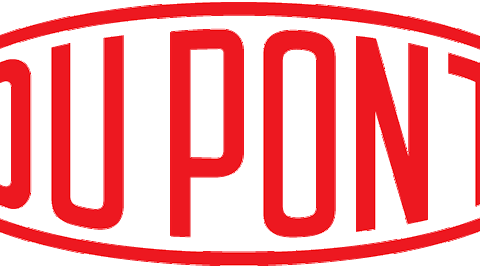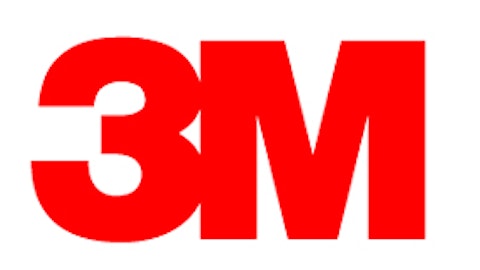Monsanto Company (NYSE:MON) has always been one of the most controversial and intriguing stocks in the market. Although seeds have been patented since the 1930s, Monsanto’s size and dominance of the genetically-engineered, herbicide-resistant seeds market has raised a serious question — should life be patented?
A farmer from Indiana recently squared off with Monsanto in the Supreme Court, challenging the company’s assertion that second-generation seeds from its genetically engineered ones are also protected under existing patents. Just how far do Monsanto’s patents extend, and why are they so critical for the company’s survival? Does the company’s apparent stranglehold on the country’s farming industry also mean that it is a solid investment, despite lingering ethical issues? Let’s take a look at how Monsanto operates.
Monsanto Company (NYSE:MON)’s business model is fairly easy to understand. First, it produces Roundup, an herbicide also known as glyphosate. Second, it manufactures genetically altered seeds (soybean, corn, sorghum and others), labeled as Roundup Ready, that are specifically designed to be immune to Roundup, and not other herbicides.
Monsanto’s straightforward strategy is to dominate both businesses by introducing farmers to one product, which is paired with the other. That simple strategy has pushed its seeds into 90% of the United States soybean farms since the first seed was introduced in 1996. Farmers can choose to buy new seeds from Monsanto every year, but Monsanto restricts them from collecting second-generation seeds, which the company claims are patented technology.
Monsanto has repeatedly sued individual farmers accused of hoarding second-generation seeds to avoid paying Monsanto for new ones. It has even gone as far as to research self-terminating seeds, which become infertile after their first generation. However, the company has never commercially released these seeds, and does not plan to do so in the future.
David vs. Goliath
Vernon Hugh Bowman, a 75-year-old farmer from Indiana, recently clashed with Monsanto in the Supreme Court after the company accused him of violating its patents by knowingly planting second-generation Monsanto seeds. Throughout most of his career, Bowman had been a loyal Monsanto customer, purchasing its engineered soybean seeds every year and signing an agreement that prohibited him from gathering or planting second-generation seeds.
However, during the off-season, Bowman purchased additional seeds from a crop elevator, which consists of “junk” seeds usually used for animal feed. Bowman identified and separated the second-generation Monsanto seeds and planted them. For this violation, Monsanto is seeking $84,000 in damages from Bowman.
Similar cases have occurred in the past, where second-generation Monsanto seeds were blown into neighboring non-Monsanto farm’s fields. Monsanto sued those farmers as well for patent violations.
Goliath crushes David
In the Bowman case, the Supreme Court sided with Monsanto, crushing hopes that a small-town farmer would be David to Monsanto’s Goliath.
Chief Justice John Roberts defended the company, claiming, “Why in the world would anybody spend any money to try to improve the seed if as soon as they sold the first one anybody could grow more and have as many of those seeds as they want?”
Monsanto’s critics have often claimed that no company should ever be allowed to patent nature, while its supporters have compared the unauthorized creation of second-generation Monsanto crops to software, movie or music piracy. Purchasing a single copy of a patented or copyrighted product doesn’t give a consumer the right to reproduce the product and sell it for a profit.
Monsanto’s lawyer, Seth Waxman, also compared Monsanto’s seed technology to vaccines, which can also self-replicate. Waxman noted, “When Merck & Co., Inc. (NYSE:MRK) or Bristol Myers Squibb Co. (NYSE:BMY) develops a vaccine and sells some of it to CVS Caremark Corporation (NYSE:CVS) so I can go in and get injected, they haven’t lost all of their patent rights in that vaccine. CVS can’t turn around and become a competitor.”
The government’s attorney, Melissa Arbus Sherry, also associated Monsanto’s seeds with copyrighted software. “I can purchase software; one reasonable use would be to make a dozen other copies to give to my friends or sell on eBay Inc (NASDAQ:EBAY),” she stated. “It’s a reasonable use, but it’s an infringing one.”
Goliath crushes Goliath
Monsanto doesn’t just spend its time bullying non-complying small-town farmers, as the acclaimed documentary Food, Inc. would have you believe. Monsanto also recently took down its industry peer E I Du Pont De Nemours And Co (NYSE:DD) to win a $1 billion settlement — the fourth largest in history — after DuPont produced genetically altered soybeans possessing the same patented GAT trait as Monsanto’s Roundup Ready seeds. Although DuPont developed the beans in question, the company never brought them to the public market for sale.
Prior to that victory, DuPont’s seed business had been considered a viable competitor to Monsanto’s core operations. After that settlement, few questioned Monsanto’s continued dominance of the field.
Fundamentals and growth
Monsanto enjoys an incredibly wide defensive moat. Only two companies can be considered true competitors — fellow chemical manufacturers DuPont and Syngenta AG (ADR) (NYSE:SYT), which both also offer genetically altered seeds in addition to herbicides and other chemical products.
How does Monsanto stack up to these rivals fundamentally?
| Forward P/E | 5-year PEG | Price to Sales (ttm) | Debt to Equity | Return on Equity (ttm) | Profit Margin | |
| Monsanto | 19.20 | 2.01 | 3.90 | 16.69 | 19.40% | 16.12% |
| DuPont | 10.64 | 1.98 | 1.26 | 115.34 | 25.91% | 7.96% |
| Syngenta | N/A | N/A | 2.79 | 38.24 | 23.06% | 13.18% |
| Advantage: | DuPont | DuPont | DuPont | Monsanto | DuPont | Monsanto |
Source: Yahoo! Finance
While DuPont definitely looks like a better value stock, Monsanto’s strengths lie in its low debt and high margins. Meanwhile, Syngenta is a controversial company that has been accused of human rights violations in South America, and its herbicides and pesticides have been at the center of several safety investigations. As such, its stock price and scattered ratios suggest that the company is struggling.
The Bottom Line
Monsanto is a powerful company that has answered that controversial question — can life be patented? If the company’s history is any indication, then that answer is a resounding yes. Monsanto’s ability to continue generating revenue — even as earnings waver seasonally — is too incredible to ignore.

MON Revenue TTM data by YCharts
Investors should not be alarmed by the company’s steep dips and precipitous climbs in earnings per share, since these purchases are usually stronger when the farming season starts. The company’s revenue growth is strong, and thanks to the recent Supreme Court judgment, it looks to remain that way for the foreseeable future.
The article Monsanto: Bet On the Bully! originally appeared on Fool.com and is written by Leo Sun.
Copyright © 1995 – 2013 The Motley Fool, LLC. All rights reserved. The Motley Fool has a disclosure policy.





